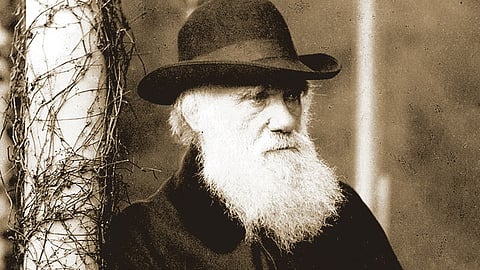

A few months ago, Elon Musk said ‘woke’ was a virus and he would not rest till he destroyed it. Apart from his other motivations, he said he 'lost' his young son to the left as the progressive establishment wholeheartedly assisted the boy's irrevocable transition to become a girl.
What must a father or mother do when they lose the right to protect their children from what they consider legitimate personal choices when the wards are legally minors? The problem is not personal. It is cultural, social and political. When does a child's individual preference get precedence over a well-meaning and god-fearing family's rights?
Except there is no god; the family, too, is a disintegrating unit in the West. In The God Delusion (2006), Richard Dawkins critiques the idea of a supernatural deity and argues against the 'god hypothesis'. He contrasts a creator-designed world with a naturalistic worldview, where the universe is governed solely by physical laws.
Dawkins is not the first to challenge the idea of a creator. Since the 1850s, when Charles Darwin published On the Origin of Species, the idea of god has been on a shaky ground. But at no point in history has he/she been more challenged. Secularism, a kind of deification of the human, has taken centre stage.
Humanity's move from divine right to human rights and the individual's central role in the universe seems to be a second stage of the Renaissance. But if neither god, king, priest, mother or father are acceptable as figures of authority, how does that crowded absence impact society? Remember, these are the days when the very idea of the hero is dead. Can secularism fill the void? Not too well, it turns out.
To a great extent, this explains the results of the recent US elections, in which a strong patriarchal, anarchist-libertarian like Donald Trump won against a seemingly stable, warm and rational person like Kamala Harris.
Even more than the dire economics of the American situation, MAGA has been a cultural correction. Commentators described it as a 'fork in the history of civilisation' because they thought the fringe and the 'looney left' had taken over the American mainstream culture.
In 21 Lessons for the 21st Century, Yuval Noah Harari discusses the role of nationalism and religion in contemporary society. He suggests that in times of uncertainty, people often gravitate towards these constructs to find meaning and stability.
From our own experience, we know that nationalism can foster a sense of community and shared purpose. Caste and class divisions did not much affect the unifying, grand narrative of the freedom struggle.
This is not to blindly defend god or race. I am a disbeliever. But in many cases, both factors play a part in the generally accepted notion of nationalism and patriotism. Can there be an England without the Anglican church and Anglo-Saxons? Or India without lord Ram and Hindus? Without these fictions, it becomes hard to define a nation.
So, when Prime Minister Narendra Modi is trying to 'unify' the multiverse of India through appeals to traditional forces such as religion, he is merely tapping into a rich, reliable vein. One of the great challenges of power is to hold things together.
On the other hand, Rahul Gandhi would like to play the underprivileged card as he believes a resurgence in that quarter amounts to national progress.
But that, too, is politics: Rahul is, after all, the opposition. Because it is not very difficult to solve the caste impasse. For example, if you arrive at an acceptable minimum income for the underprivileged, then really all you need to do is directly transfer sufficient affirmative doles to their accounts. In the space of a generation, they are likely to find themselves more proportionately represented in society.
Rapid technological and economic changes too can lead societies to gravitate toward 'strong' leadership. The extension of identity politics, cancel culture, and virtue supremacism may eventually fragment societies into tribes of competing grievances, making their return to broader, unifying narratives more appealing.
Indeed, this is possibly why the world is shifting to strong leaders. Strength is seductive. The strong offer the one thing we are constantly in short supply of: hope. In the war between believers (the right) and non-believers (the left), believers tend to win. Why? Because believers tend to fight more for their convictions.
In Submission (2015), a controversial novel by Michel Houellebecq, François, a middle-aged literature professor at the Sorbonne François is represented as a decadent and liberal. He is disillusioned with his life; marked by failed relationships, academic stagnation, and a sense of existential ennui. He likes good wine, good food, and women. He believes in nothing. He is a critic of Western secular values.
Against this backdrop, in the presidential elections, the Islamic Brotherhood, led by Abbes, emerges as a strong, peaceful, centrist force capable of uniting disparate factions. To block the far-right National Front, the mainstream political parties form an alliance with the Brotherhood, enabling Abbes to become the president.
In the world of the novel, the liberals play into the hands of a strong third party that believes. François does not much care as his career is looking up under the new dispensation. Houellebecq's point is that in a given situation, believers tend to win. This is a problematic point. But we will need to address it sooner or later to see why India—and the rest of the world— is going where it is.
C P Surendran
Poet, novelist, and screenplay writer. His latest novel is One Love and the Many Lives of Osip B
(Views are personal)